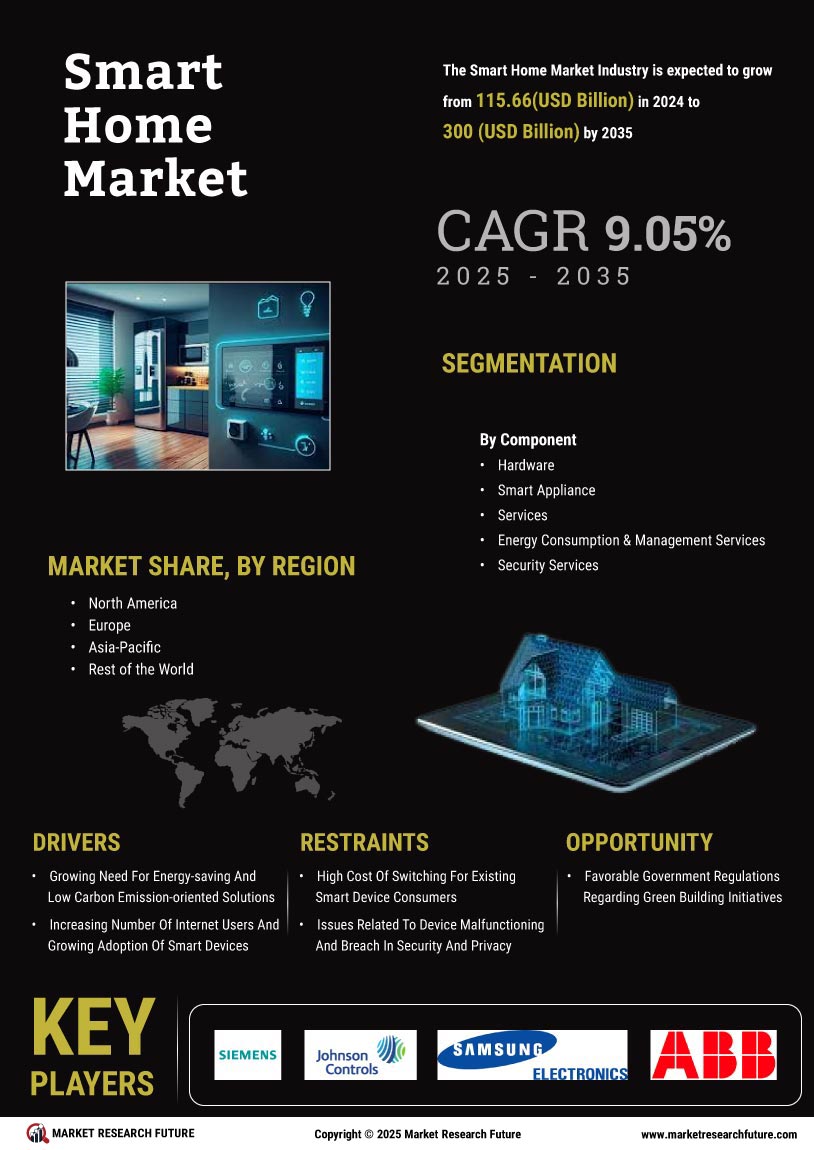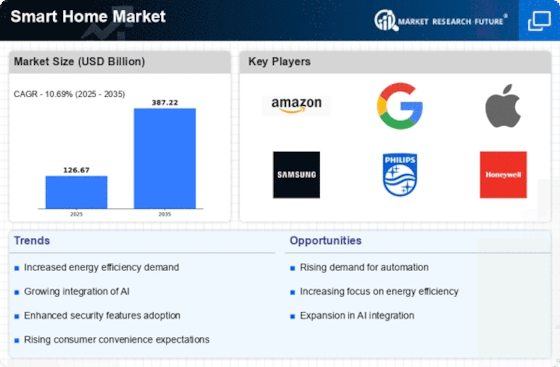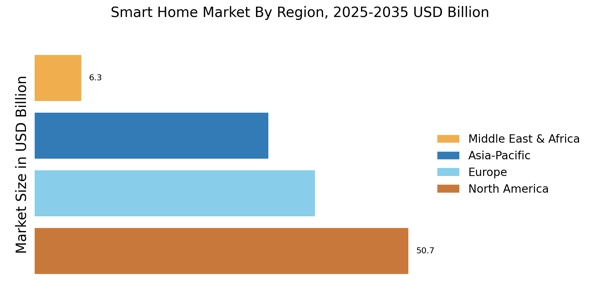Increased Focus on Home Security
The Smart Home Market is experiencing a heightened focus on home security solutions. With rising concerns about safety and crime rates, consumers are increasingly investing in smart security systems, including cameras, alarms, and smart locks. Data suggests that the global market for smart security devices is projected to grow at a compound annual growth rate of over 20% in the coming years. This growth is fueled by advancements in technology, such as facial recognition and remote monitoring capabilities, which enhance the effectiveness of security systems. As a result, the Smart Home Market is likely to expand as consumers prioritize safety in their smart home investments.
Rising Consumer Demand for Automation
The Smart Home Market experiences a notable increase in consumer demand for automation solutions. As households seek convenience and efficiency, the adoption of smart devices such as smart thermostats, lighting systems, and home assistants rises. Recent data indicates that approximately 70% of consumers express interest in automating their homes, reflecting a shift towards a more connected lifestyle. This trend is driven by the desire for enhanced control over home environments, leading to a surge in product offerings from manufacturers. Consequently, the Smart Home Market is likely to witness sustained growth as more consumers prioritize automation in their purchasing decisions.
Growing Awareness of Energy Efficiency
The Smart Home Market benefits from a growing awareness of energy efficiency among consumers. As energy costs rise and environmental concerns become more pressing, homeowners increasingly seek solutions that reduce energy consumption. Smart devices, such as energy-efficient appliances and smart meters, play a crucial role in this transition. Recent statistics reveal that homes equipped with smart technology can reduce energy usage by up to 30%, making them attractive to eco-conscious consumers. This trend not only supports sustainability efforts but also drives the Smart Home Market forward, as manufacturers respond to the demand for energy-efficient solutions.
Integration of Voice-Activated Technology
The Smart Home Market is significantly shaped by the integration of voice-activated technology. As virtual assistants like Amazon Alexa and Google Assistant gain popularity, consumers increasingly prefer hands-free control of their smart devices. This trend is evident in the rising sales of voice-activated speakers, which have become central hubs for smart home management. Current estimates indicate that over 50% of smart home users utilize voice commands to control their devices, highlighting the convenience and accessibility offered by this technology. The continued integration of voice-activated solutions suggests that the Smart Home Market will further evolve, catering to the preferences of tech-savvy consumers.
Advancements in Internet of Things (IoT) Technology
The Smart Home Market is significantly influenced by advancements in Internet of Things (IoT) technology. The proliferation of connected devices enables seamless communication between various home systems, enhancing user experience. As of October 2025, it is estimated that the number of connected devices in households has surpassed 30 billion, indicating a robust ecosystem for smart home solutions. This interconnectedness allows for improved functionality and integration of devices, making smart homes more appealing to consumers. The ongoing development of IoT technology suggests that the Smart Home Market will continue to evolve, offering innovative solutions that cater to diverse consumer needs.


















